- Home
- Tim LaHaye
03 The Europa Conspiracy Page 17
03 The Europa Conspiracy Read online
Page 17
Their responsibilities included patrolling the pedestrian path that ran along the Hudson River on the Manhattan side. They started at the south end, walked north, then returned. They could be outdoors and enjoy the beauty of the parkway, they didn’t have to worry about traffic, they didn’t have to get into fights or be shot at, and they met a lot of nice people walking and jogging. It was a primo job.
Often they would get into conversations with fishermen or people picnicking under the bridge. Many people from out of town walked the area and visited the Little Red Lighthouse at the base of the bridge. The lighthouse had been originally built and installed at Sandy Hook, New Jersey. Dismantled and moved to Jeffrey’s Hook in the late 1800s, it was the ideal place to take pictures.
“Just another day in paradise, Norm,” Jim said with a broad grin.
“I know. It’s a tough job walking next to the river in the sunshine on a clear day. But somebody’s got to do it.”
“It’s kind of quiet today. I don’t see many people.”
“No, just the maintenance crew and some Rollerbladers over by the lighthouse.”
“Maintenance must be working on something. There seem to be more of them than usual.”
Norm started to look at the maintenance workers when Jim yelled. “Norm! The two Rollerbladers just went down. They crashed into each other, and they look like they’re hurt.”
They hurried toward the skaters. Jim was about a hundred feet away when he sensed something was wrong. The two men on the ground looked as if they were Arabs. He had never seen any Arabs skating before. He had a hinky feeling about them.
At the same instant, Norm began to say something about the maintenance crew. He knew most of the men on the crew. He didn’t remember any Arabs working in maintenance. Just then their radios sounded with a loud squawk.
“Central Command to all units. Code T! I repeat, Code T!”
Murphy’s cell phone rang a second time. It was Levi Abrams.
“Michael, turn on your radio. The news media has gotten ahold of the possible bombing of the bridge. Someone from the FBI must have leaked it. I think there’ll be mass panic. No one will want to be caught in another 9/11-type of situation.”
Murphy reached to switch on the radio.
“Michael, I don’t know what to tell you,” Abrams continued, worried. “Bridge security has been alerted. They’ll be attempting to get traffic off the bridge and close it down. That is a major operation. The FBI, other police units, and the military are mobilizing just in case our suspicions are correct. The problem is the congestion. Emergency personnel will not be able to get through immediately. Since you don’t have a portable radio, you’re on your own. You won’t know what everyone else is doing. I wish I was there to help.”
“I’ll try to keep in touch with you by cell phone.”
Fadil looked at his watch. His hands were shaking badly. In only a few minutes he would push the button to detonate the explosives that would cut the power to the bridge and shut down the many closed-circuit television cameras. His was a simple job. It was not dangerous. No one could see where he was hiding. He probably wouldn’t be caught, yet he was scared to death.
He had told everyone that he believed in jihad, but when it came down to actually doing something about it, that was another thing. The moment of truth was almost upon him. He wanted the American infidels to die, yet he was afraid. Would he be able to escape the effects of the attack? Would he ever see his family again, or would he become a suicide martyr like the heroes of 9/11? He really didn’t want to die.
Carla Martin had just driven past the New Jersey-side tower toward Washington Heights when the traffic slowed to a stop.
Now what? she wondered irritably. Why is everyone stopping on the bridge? I’ll be late for my doctor’s appointment.
She bent forward, pushed in another CD, and began to sing along with the music. She started thinking about her baby—her first. She and her husband, Stan, hadn’t been sure if they really wanted to know if it was a boy or a girl, but their curiosity had gotten the better of them. Tony would be born in three months.
After the appointment, I’ll pick out the baby crib. What’s holding everybody up?
Sharif had overpowered the guard at the tower on the Manhattan side of the bridge. He had convinced the man that he worked for the elevator company and was there to fix a reported problem.
Sharif had shot the guard with a silenced weapon when the man stepped out of the guard booth to check his credentials. After dragging the man back inside the booth, he got the detonators out of the service vehicle he was driving.
His assignment was to lower the elevator to ground level under the bridge. There his fellow terrorists, disguised as maintenance workers, would load explosives into the elevator.
FORTY-TWO
ASIM AND NAJJAR had timed their approach to the bridge precisely. Asim would enter the approach on the top level, and Najjar would approach the lower level. Both were driving large trucks filled with explosives and radioactive materials. They knew that it would be a suicide mission. But they would do anything for the cause… even die. Allah would be pleased. They knew that their friends and relatives would not mourn but rejoice. Songs might even be written about their martyrdom.
Talon had given them exact instructions. They were to drive to the center of the bridge and stop where the cables dropped to the closest point above the vehicle traffic. Then they were to get out of their trucks, lift the hoods, and pretend to be having engine trouble. Next they were to slash the trucks’ tires, so they would be difficult to move. Finally they were to toss the keys off the bridge.
The power would go out on the bridge and the television cameras would not be able to monitor what was happening. The confusion and traffic would delay the bridge police from arriving at the holdup. And even if they did reach the trucks, they wouldn’t be able to move them. Also, no one would realize that a truck was stopped on each level, one above the other. The power of the two simultaneous explosions would be massive. Easily enough to sever the two thirty-six-inch cables on the south side of the bridge.
When the explosion severed the cables, the surface of the bridge would torque downward at the point of the blast. As the bridge twisted, the explosives in the elevator of the tower would be deployed. That would cause the tower and bridge to twist and bend toward the river. Talon hoped that the snapping of the cables, the twisting and weight of the bridge, and the collapsing of one side of the tower would cause the bridge to collapse at midpoint. The attack would be colossal.
Not only would the bridge go down, but radiation would be released that would kill thousands and terrify survivors. One of the main arteries into New York City would be severed. Any possible repairs would cost billions of dollars.
Talon had convinced his Arab crew that this attack would dwarf 9/11 and would go down as one of the greatest single terrorist attacks in history. This thought had pleased them greatly. The $500,000 each man received as payment and insurance for his family also pleased them.
Asim and Najjar each had a detonator. Either man could set off the explosions on both trucks. It was their backup system. If their detonators did not work, Sharif could set them off just before he set off the explosion in the elevator.
Asim’s heart was beating fast as he approached the center of the bridge. He braked and turned on his flashing emergency lights. He could hear cars behind him begin honking their horns. The bridge was bumper-to-bumper traffic in the early-morning rush hour.
He got out and lifted the hood. Then he tossed the keys over the railing of the bridge. Next he took out his knife and slashed the tires. Everything was going according to plan.
He looked at his watch and waited, his hand on the detonator.
“Hey! You there! Move your truck!”
The words startled Asim. He turned and looked in the face of an irate commuter who had climbed out of his car.
“I have motor trouble. I cannot move,” he said in broken English.
The commuter swore bitterly and shook his fist. “You’d better move this truck!”
Asim pointed at his cell phone. “I am calling for assistance right now.”
The man swore again and made hand signs at Asim, then stomped back to his car.
Asim punched in numbers. “Najjar, are you in position?”
“No. The traffic must be a little slower on the lower level. I will be in position in about four minutes. Have patience. Just think, Asim. We will be great martyrs. Allah be praised.”
FORTY-THREE
KARA SETTER ARRIVED early. She needed extra time to get things organized and ready for the members of the General Assembly. She loved her job at the United Nations. It gave her the opportunity to meet many important and interesting people from around the world. She was deep in thought as she set out the notebooks with the agenda for the day.
“Good morning, Kara. Are we ready to go?”
She turned and looked into the face of Secretary-General Musa Serapis of Egypt. “Yes, Mr. Serapis. All I need to do is see if the coffee is finished and the rolls are ready. How’s your jet lag?”
“It’s not too bad.”
“I don’t know how you do it. How many hours is it from Egypt to New York?”
Before he could answer, the chief of security ran into the room. “Mr. Secretary, we just got an emergency terrorist warning from the FBI. They suggest that we evacuate the United Nations building immediately.”
Secretary-General Serapis and members of the Security Council hurried to the secure room. By the time everyone had arrived, scattered reports about the possible attack were being received. The mention of a possible radiation cloud caused great alarm. After a hasty meeting, it was decided to evacuate the building and send everyone either to their homes or to a safe location. The members also agreed to reconvene at a conference room in Newark International Airport as quickly as they could.
With the memory of 9/11 still fresh in everyone’s mind, it was extremely difficult to control the panic in the United Nations building. The delegates, who had been privy to “official” information, attempted to leave in an orderly fashion, but employees and visitors were terrified. All they knew was that there had been a major terrorist alert for New York City.
There was pushing, shoving, and yelling as thousands of employees attempted to leave. Kara Setter was knocked down in the rush and trampled. It was every person for themself.
Everyone who had driven to the city now was attempting to leave at the same time. Tempers flared. The traffic jam was enormous.
Taxi companies no longer answered their phones. All the cabs were tied up shuttling people out of the Washington Heights area. People without transportation ran out into the streets, begging those lucky enough to have a car for a ride.
FORTY-FOUR
SERGEANT HARLAN GRIFFIN and Officer Chris Goodale were about 1,500 feet over the Cross Bronx Expressway observing the traffic flow. They were heading east in their normal morning fly-over in the police helicopter when the alert came over.
“This is control to Air 17. Please be advised that there is a Code T at the George Washington Bridge. Please respond, Code Three.”
“Hold on,” said Griffin. Immediately he leaned the stick to the right and the helicopter made a sweeping turn to the west.
“Turn on the power!” Goodale shouted.
In only minutes they could see that traffic was jam-packed on the Manhattan side of the bridge. Cars that were facing toward the bridge were locked in place and could not turn around. Traffic moving away from the bridge on the Henry Hudson Parkway, 1-95, and 1-87 was hampered from moving forward by other cars attempting to flee the Washington Heights area.
“Look at that mess!” Griffin exclaimed.
“It looks like absolute panic,” Goodale responded.
When Norm Huffman and Jim Daniels heard the Code T for terrorist attack, they reached for their Glocks. They both knew there was something desperately wrong with two Arab Rollerbladers on the ground and four Arab maintenance workers nearby.
Huffman and Daniels had their hands on their Glocks when the two men on the ground drew weapons and fired. The impact of the bullets against their bulletproof vests knocked the officers backward.
Huffman and Daniels were tough and seasoned veterans. This wasn’t their first gun battle. They had just been caught off guard. Instinctively they rolled away from each other, aimed, and fired. The two Rollerbladers did not have the advantage of bulletproof vests. The first skater took a bullet to the head and one more to the sternum. The second one was still trying to get up when he took a bullet in the side that pierced his heart and exited through a lung. Both were dead before they hit the ground.
The firefight had attracted the attention of the four maintenance workers who were about two hundred feet away. They too drew their weapons and aimed. Daniels took a round in his right shoulder. He went down still holding onto his gun.
Huffman hit the ground using the body of one of the terrorists as a shield. Then he began to fire at the workers who were standing near a service vehicle. He had no idea that it was filled with high-powered explosives. Daniels crawled behind the other dead man, shifted his gun to his left hand, and began to fire too.
Goodale was the first to spot the firefight.
“Harlan! To the left at eleven o’clock… near the river… there are two officers down in a gun battle.”
Griffin pushed the stick to the left; all of a sudden a terrific ball of flame welled up from the ground.
One of Huffman’s bullets had hit the vehicle’s gas tank, causing it to ignite. The four terrorists and the truck disappeared in the fireball.
As the service vehicle had been covered only by a thin canvas top, not a metal roof, almost all of the force of the explosives went upward and outward, causing a ball of fire and lots of black smoke.
Griffin and Goodale were stunned. The force of the rushing air from the blast moved their helicopter off course, and it was all Griffin could do to maintain control.
The force of the concussion had thrown Daniels and Huffman backward. They were somewhat protected by the terrorists’ bodies and the fact that most of the blast’s energy was moving straight up. In shock, they shook their heads, trying to diminish the ringing in their ears.
Shaking and sweating, Fadil pushed the button to ignite the small explosion that blew up the power circuit to the bridge cameras.
After doing so, he dropped the detonator, emerged from the bushes where he had been hiding, and began to walk against traffic along the road away from the bridge. Despite his attempt to look casual, he looked completely out of place.
Kevin Gerber was listening to music on the radio in his car. This is the worst traffic jam I have ever seen on the George Washington, he thought.
Out of the corner of his eye he saw movement to the far right. He turned to see a large, well-built man running toward the bridge past the stopped cars.
That’s weird. I didn’t think they let pedestrians run alongside the roadway.
Gerber continued to listen to the radio for a couple of minutes, tapping his fingers on the steering wheel and singing along. Then he focused on the distance ahead. He could see a man walking away from the bridge toward his line of cars.
What in the world is he doing? Maybe his car’s out of gas and he’s going to get some. First we have a jogger and now we have a walker… and both of them in street clothes. Strange.
Gerber continued to tap his fingers. All of a sudden the music was interrupted by a beeping sound.
“This is your emergency radio network. We have been informed that there is a terrorist warning for the George Washington Bridge. The bridge will be closed for the rest of the day. Please seek alternate routes and stay away from the bridge.”
Oh, great! And I’m almost on the bridge. Gerber looked around, trying to see if there was any way out of the traffic.
All of a sudden there was a tremendous flash and an explosion on the south si
de of the bridge. Gerber could see smoke rise up on the other side of the tower.
Then he saw the tall thin Arab-looking man take off running.
What the…!
Instantly it all fell into place. He must be part of the terrorist group.
Gerber turned off the motor and jumped out of his car, in pursuit of the terrorist. Soon the distance between the two men had lessened.
Fadil had no idea that he was being pursued. He had only one thought in mind: to get as far away as he could, as fast as he could.
Fadil didn’t hear Gerber until only a few feet separated the men, and by then it was too late. Gerber had leaped into the air in a flying tackle.
Other commuters who had heard the same radio announcement had also put two and two together as they watched one man chasing another. Several climbed out of their cars and followed. No longer would people sit idly by as America was destroyed.
Gerber grabbed Fadil around the waist, and they fell to the ground. Fadil fought like a madman, biting, scratching, and kicking. By then a burly taxi driver had come to Gerber’s aid. Soon other men joined in to subdue Fadil, who was screaming in Arabic.
A bridge security team had made it to the south side of the Manhattan tower. Dressed in black SWAT uniforms, they looked ominous. They had keys to the elevator room.
Sharif was unzipping the bag containing the detonators when he heard some noise at the door. He stopped and reached for his automatic.
He had just gotten the gun in his hand when the first SWAT officer entered. Sharif swung his arm upward and fired three quick shots. The first bullet hit the officer in the chest, the force knocking him down. The other two shots drove into the wall behind the officer.
The second SWAT man fired five shots into Sharif. Somehow the terrorist lived for almost three minutes before he finally died.
FORTY-FIVE

 Glorious Appearing: The End of Days
Glorious Appearing: The End of Days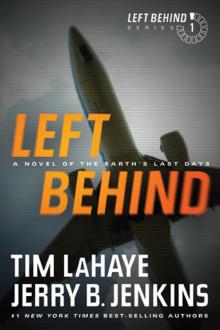 Left Behind: A Novel of the Earth's Last Days
Left Behind: A Novel of the Earth's Last Days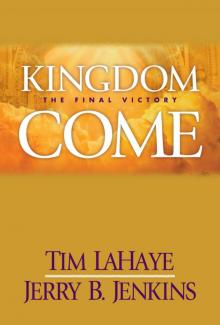 Kingdom Come: The Final Victory
Kingdom Come: The Final Victory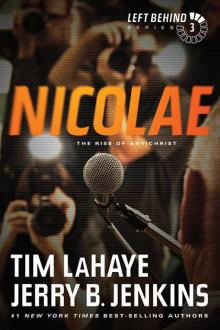 Nicolae: The Rise of Antichrist
Nicolae: The Rise of Antichrist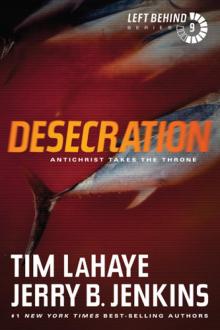 Desecration: Antichrist Takes the Throne
Desecration: Antichrist Takes the Throne Mark's Story: The Gospel According to Peter
Mark's Story: The Gospel According to Peter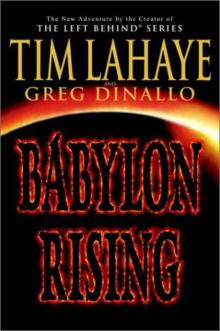 Babylon Rising
Babylon Rising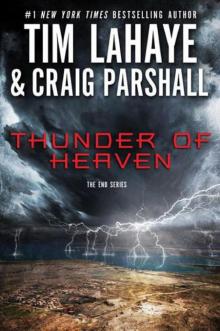 Thunder of Heaven: A Joshua Jordan Novel
Thunder of Heaven: A Joshua Jordan Novel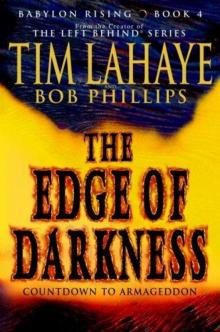 The Edge of Darkness
The Edge of Darkness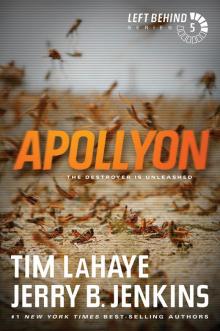 Apollyon: The Destroyer Is Unleashed
Apollyon: The Destroyer Is Unleashed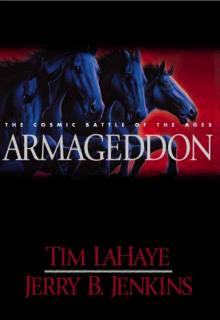 Armageddon: The Cosmic Battle of the Ages
Armageddon: The Cosmic Battle of the Ages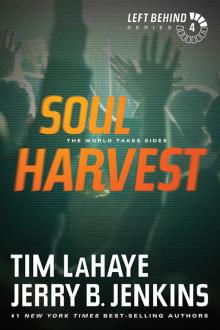 Soul Harvest: The World Takes Sides
Soul Harvest: The World Takes Sides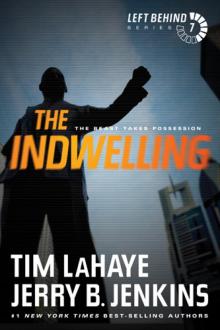 The Indwelling: The Beast Takes Possession
The Indwelling: The Beast Takes Possession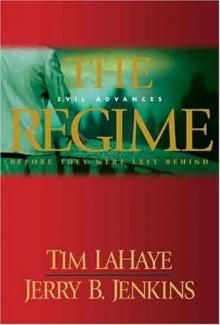 The Regime: Evil Advances
The Regime: Evil Advances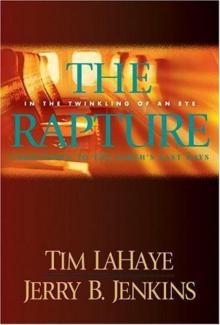 The Rapture: In the Twinkling of an Eye / Countdown to the Earth's Last Days
The Rapture: In the Twinkling of an Eye / Countdown to the Earth's Last Days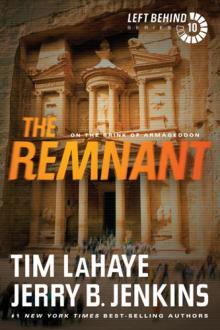 The Remnant: On the Brink of Armageddon
The Remnant: On the Brink of Armageddon John's Story: The Last Eyewitness
John's Story: The Last Eyewitness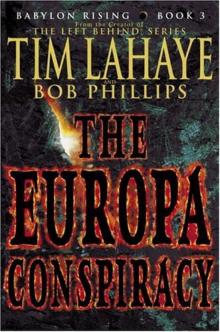 The Europa Conspiracy
The Europa Conspiracy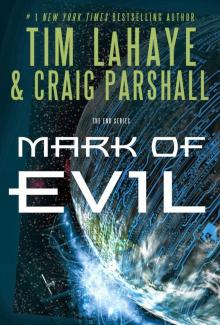 Mark of Evil
Mark of Evil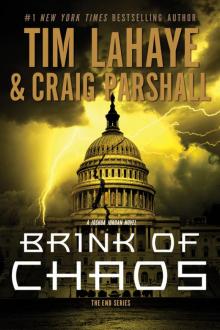 Brink of Chaos
Brink of Chaos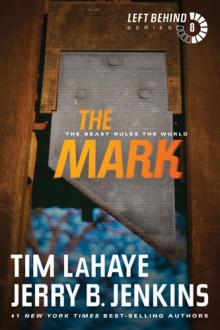 The Mark: The Beast Rules the World
The Mark: The Beast Rules the World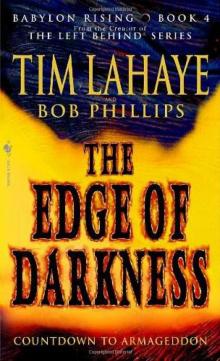 04 The Edge of Darkness
04 The Edge of Darkness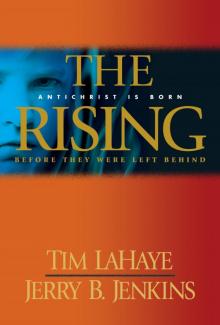 The Rising: Antichrist is Born / Before They Were Left Behind
The Rising: Antichrist is Born / Before They Were Left Behind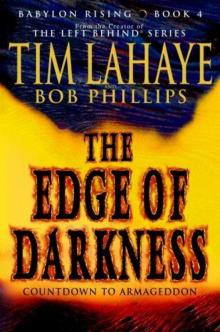 Babylon Rising: The Edge of Darkness
Babylon Rising: The Edge of Darkness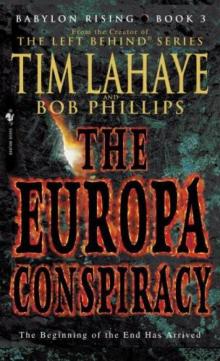 03 The Europa Conspiracy
03 The Europa Conspiracy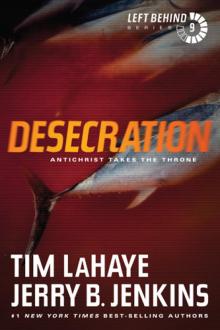 Desecration
Desecration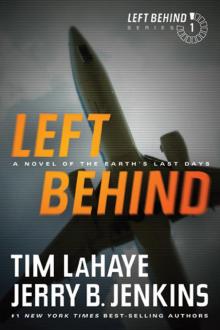 Left Behind
Left Behind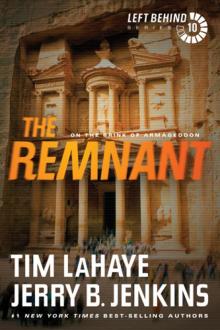 The Remnant
The Remnant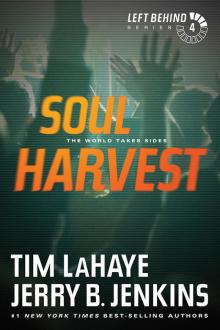 Soul Harvest
Soul Harvest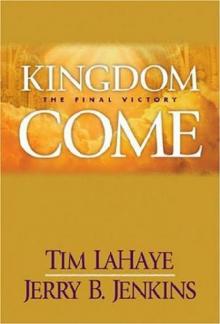 Left Behind Book 13: Kingdom Come The Final Victory
Left Behind Book 13: Kingdom Come The Final Victory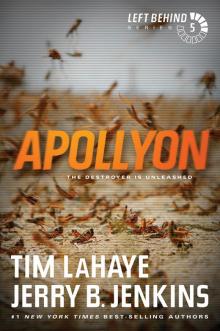 Apollyon
Apollyon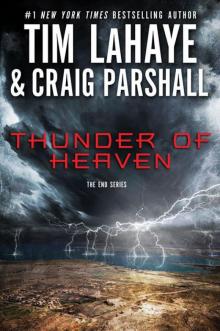 02 Thunder of Heaven: A Joshua Jordan Novel
02 Thunder of Heaven: A Joshua Jordan Novel Glorious Appearing
Glorious Appearing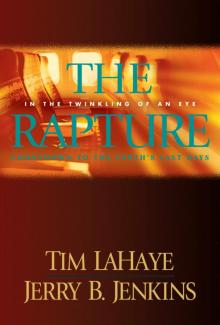 The Rapture: Evil Advances / Before They Were Left Behind
The Rapture: Evil Advances / Before They Were Left Behind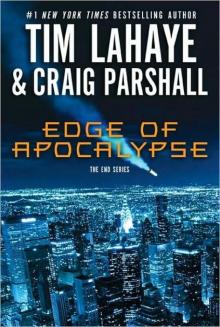 Edge of Apocalypse
Edge of Apocalypse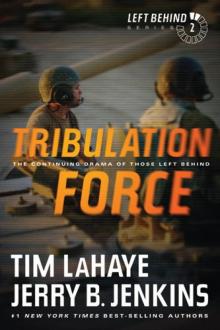 Tribulation Force
Tribulation Force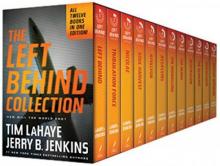 The Left Behind Collection: All 12 Books
The Left Behind Collection: All 12 Books Black Friday
Black Friday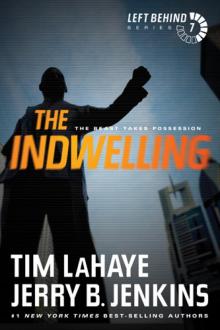 The Indwelling
The Indwelling The Left Behind Collection
The Left Behind Collection